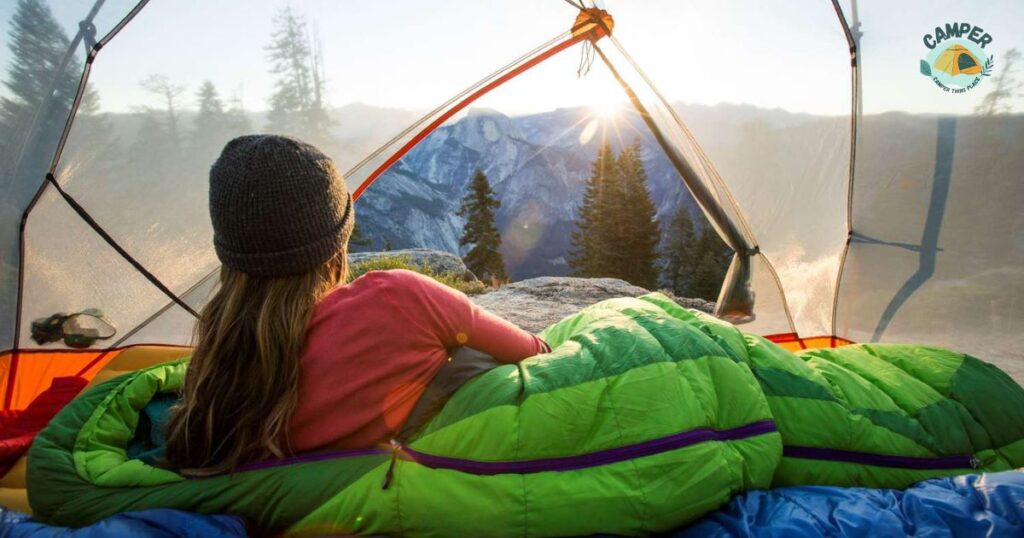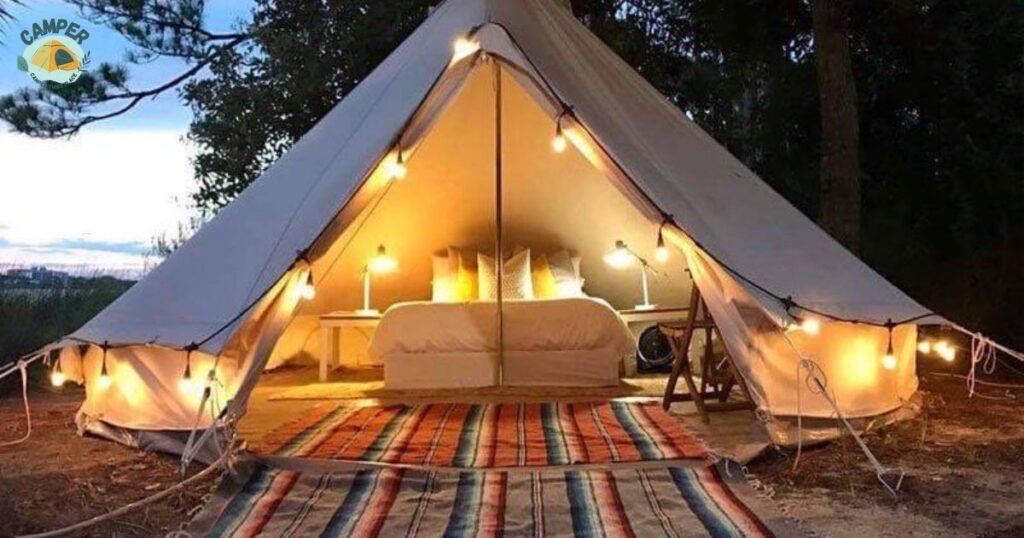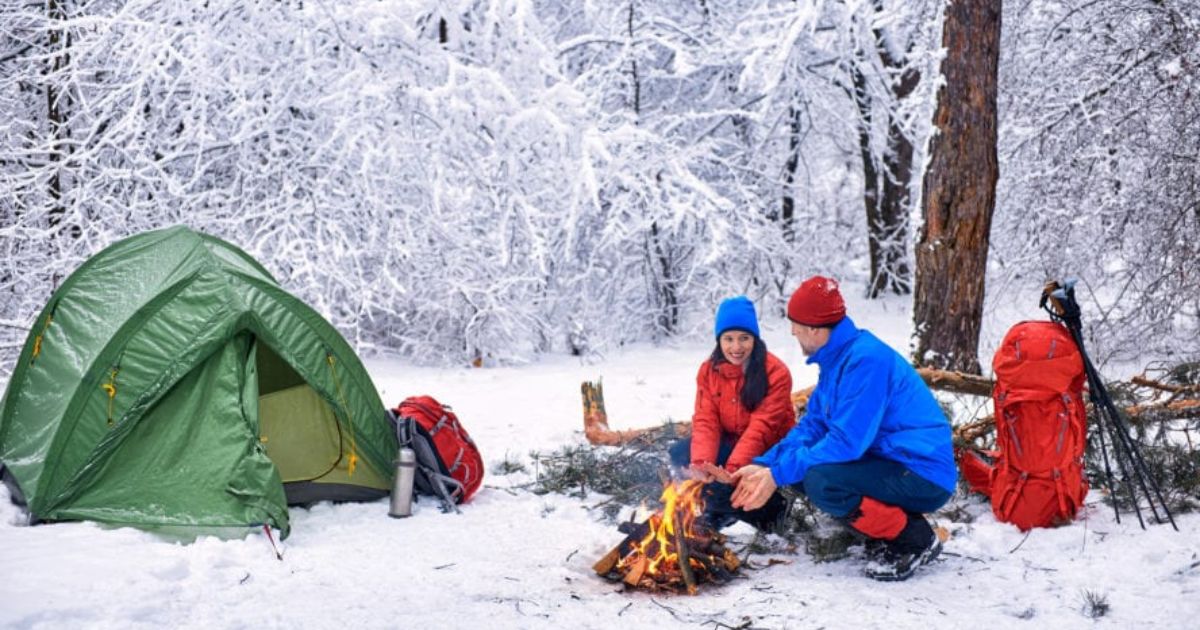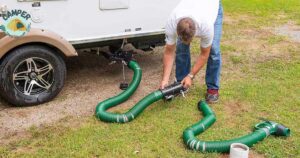A camper is a person who enjoys outdoor activities like camping. They use tents, trailers, or entertaining vehicles to stay overnight in nature. Campers often try to find adventure, connect with nature, and build memories around campfires.
Camping is a popular way for campers to discharge the hustle of daily life and experience the simplicity of the great outdoors. It can be chilly, but fear not. We have a solution to make it enjoyable and safe. Here some people ask how to insulate a tent for winter camping. Start by adding a thick ground mat for insulation. Insulating your tent is the key to convenient nights in the snow.
To keep warm while winter camping, use a thermal pad under your sleeping bag and choose a four-season tent. Inside, go for a warm sleeping bag and add extra blankets. Seal any openings in the tent to keep the heat inside. Seal the deal by hanging insulating blankets inside.
Why You Should Insulate Your Tent for Winter Camping?

It can be unfriendly, but protecting your tent makes a significant difference. When the temperature drops, proper insulation helps retain heat inside your tent. keeping you warm and convenient throughout the night. This means you can enjoy the beauty of winter landscapes without shivering in the cold.
Insulation not only keeps you warm but also helps conserve energy. With a well-insulated tent, your body heat stays trapped inside, reducing the need for extra layers and bulky blankets. This not only makes your winter camping experience more comfortable but also lighter, as you won’t have to carry as much gear to stay warm.
This added insulation can make a significant impact on your overall enjoyment of winter camping, allowing you to embrace the winter wonderland while staying warm and snug in your well-insulated tent.
Do People Actually Camp in the Winter?
Winter camping may seem chilly, but many people enjoy it. They bundle up in warm gear and set up tents in the snow. It is a chance to experience the quiet beauty of winter and connect with nature in a unique way.
Campfires in the snow are cozy and provide warmth. Winter campers often enjoy activities like snowshoeing and ice fishing. It’s a different kind of adventure, where the cold becomes part of the experience, creating memories that last a lifetime.
While winter camping requires extra preparation, like insulated sleeping bags and layers of clothing. The rewards include incredible snowy landscapes and the peaceful quietness of a winter night. For those who embrace the cold, camping in winter can be a magical and invigorating experience.
Different Ways To Insulate a Tent for Winter Camping
Winter camping requires effective insulation to stay warm. One way is using thermal sleeping pads beneath your sleeping bag to prevent heat loss to the cold ground. Insulating the tent with a double-layered setup or adding a reflective blanket inside can help trap and reflect heat, ensuring a cozy and comfortable camping experience in chilly temperatures. Here we will discuss different ways to insulate a tent in winter camping:
Pitch Your Tent in a Good Spot
Choosing the right spot to pitch your tent is crucial for a comfortable camping experience. Look for level ground to ensure a good night’s sleep and prevent discomfort. Avoid low-lying areas to steer clear of potential water accumulation during rain.
Get a Tent Heater
When camping in chilly weather, consider getting a tent heater to stay warm and relaxed. Tent heaters are portable and provide a comfortable temperature inside your tent. Make sure to follow safety guidelines and use them responsibly to increase your cold-weather camping experience.
Use a Tent Footprint
Using a tent footprint is a smart way to protect your tent’s bottom from wear and tear. It acts as a barrier against rocks, moisture, and sharp objects on the ground. This simple addition helps extend the lifecycle of your tent.
Use Hot Rocks
To stay warm in your tent, try using hot rocks. Heat the rocks by placing them near a campfire. Then carefully transfer them into a heat-resistant container inside your tent. They will radiate temperature, creating a cozy atmosphere for a more comfortable night’s sleep in colder conditions.
Try Ground Insulation
Improve your tent’s insulation by adding ground insulation. Place a layer of foam or a specially designed ground pad under your sleeping bag to keep the cold from seeping in. This simple step helps retain body heat and ensures a warmer and more comfortable night during your camping adventure.
Use a Foam Pad for Floor Insulation
Improve your tent’s insulation by using a foam pad on the floor. Lay it beneath your sleeping bag. It will create a barrier against the cold ground. This simple addition helps retain body heat, providing extra warmth and comfort during your camping experience.
Try a 4-Season Ten
Choose a 4-season tent for versatile camping in different weather conditions. These tents are designed to bear colder temperatures, snow, and harsh winds. With strong construction and additional features, they provide a reliable shelter for year-round outdoor adventures.
Cover the Tent With Thermal Insulation
Increase your tent’s warmth by covering it with thermal insulation. Use reflective blankets or specially designed thermal covers to trap and reflect body heat. This extra layer helps in cold weather camping, ensuring a warm and cozy atmosphere inside your tent.
Place a Thermal Blanket on the Top of the Tent
Improve your tent’s insulation by placing a thermal blanket on top. This extra layer on the exterior helps traps heat and shields against cold temperatures. Secure it tightly to enhance warmth inside the tent, making your camping experience more comfortable, especially in chilly weather.
Is it safe to insulate a tent in winter?
Insulating a tent in winter can be safe and beneficial. Adding insulation helps trap heat inside. It keeps you warm during cold nights. You can use blankets, sleeping bags, or specially designed-tent insulation to create a cozy environment. Here we solve a question that people mostly ask how to insulate a tent for winter camping? Consider using materials like insulated sleeping pads or liners to enhance warmth, and make sure to follow the tent manufacturer’s guidelines to maintain its integrity.
It is essential to prioritize safety. Avoid using flammable insulation materials, as it can pose a fire hazard. Ensure proper ventilation inside the tent to prevent condensation, which can make the interior damp and uncomfortable. By choosing safe materials and maintaining ventilation, you can make insulating your tent a secure and warm option for winter camping.
Before insulating your tent, check the manufacturer’s guidelines. Some tents are designed with built-in insulation, and altering them may affect their performance. Additionally, be mindful of the added weight from insulation, especially if you’re backpacking. Overall, with proper precautions, insulating a tent can make winter camping more enjoyable and comfortable.
Choose Your Winter Camping Destination
Winter camping offers a unique and adventurous experience. When selecting your destination, consider factors like weather, accessibility, and activities. Choose a spot that aligns with your preferences and skill level for an enjoyable winter getaway.
Some popular winter camping destinations include national parks with snowy landscapes. Look for sites that offer well-maintained trails and fabulous views. Whether you prefer the calmness of a snowy forest or the challenge of high-altitude camping, there’s a winter destination for everyone.
Safety should be a top priority when choosing your winter camping location. Ensure that the area is equipped with the necessary facilities and has a reliable communication network. Research the local weather conditions and pack accordingly. With the right destination and preparation, your winter camping adventure will be a memorable and rewarding experience.
What not to do when trying to insulate your tent for winter?

| Mistake | Why it’s a Problem |
| Using Flammable Materials | Materials like hay or straw can catch fire easily, posing a danger to you and others. Stick to fire-resistant insulation. |
| Blocking Ventilation | Sealing your tent completely can lead to condensation, causing wetness inside. Ensure proper ventilation to prevent moisture buildup. |
| Ignoring the Floor | Neglecting the tent floor allows cold to leak in. Use a thick ground pad or insulating material to protect against ground temperature. |
| Overlooking Seams | Failing to seal seams lets cold air in and warm air out. Use seam sealer to close any gaps for effective insulation. |
| Using Wet Insulation | Wet insulation loses its thermal properties. Make sure all materials are dry before installing them in your tent. |
| Poorly Fitting Insulation | Moveable or ill-fitted insulation won’t provide proper coverage. Ensure a warm fit to maximize heat retention. |
| Relying Solely on Clothing | Depending only on clothing might not be sufficient. Combine clothing with proper insulation methods for optimal warmth. |
| Forgetting Windbreaks | Ignoring the wind can significantly reduce the effectiveness of your insulation. Set up windbreaks to shield your tent from cold gusts. |
Frequently Asked Questions
How can I make my winter tent warmer?
Use a high-quality sleeping bag, or insulating ground pad, and add thermal layers like blankets or sleeping bag liners to make your winter tent warmer.
How do you survive a cold night in a tent?
Stay warm in a cold tent by using a well-insulated sleeping bag, or thermal clothing. Also, use an insulating ground pad and seal any drafts in the tent it makes your tent warmer.
How can I keep my tent warm without a heater?
You can warm yourself in a tent without a heater by using insulating gear like a quality sleeping bag, thermal clothing, and sealing drafts.
Is it OK to use a heater in a tent?
A heater in a tent poses risks like fire and carbon monoxide. So, it is generally not recommended. Consider safer alternatives for warmth.
Can you heat a tent with charcoal?
Heating a tent with charcoal is not recommended due to fire hazards and carbon monoxide risk. It can be dangerous in an enclosed space.
What is the best material to insulate a tent?
Closed-cell foam or polyester-filled insulation materials are effective for tent insulation, providing warmth and moisture resistance without compromising breathability.
How to insulate tent walls?
Insulate tent walls by attaching reflective Mylar blankets, thermal liners, or additional blankets to create a barrier against the cold.
Final Thoughts
Insulating your tent for winter camping is crucial to ensure a warm and comfortable outdoor experience. By following these simple steps, you can enhance your insulation and stay cozy even in chilly conditions.
Proper insulation not only keeps you warm. But also contributes to energy efficiency by reducing the need for additional heating equipment. Here thisquestion How To Insulate A Tent For Winter Camping? is solved. Investing time and effort in insulating your tent pays off with a more enjoyable winter camping adventure.
From choosing the right materials to sealing any gaps, these techniques will help you create a thermal barrier that keeps the cold at bay. So, gear up, follow these tips, and embark on a winter camping trip with confidence, knowing that you’ve taken the necessary steps to stay warm in the great outdoors.

Jackson Ray, a seasoned blogger with a decade of experience, is the creative mind behind “camperthingsplace.com.” Explore his wealth of insights and passion for camping through engaging content on the website.











